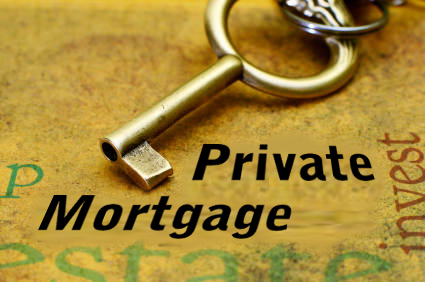How private mortgage lenders savannah ga Help veterans Buy Homes in Georgia
Exactly how It Works: A Comprehensive Guide to Mortgage Lending for First-Time Buyers
Navigating the globe of mortgage lending can be daunting for newbie customers. Recognizing the basic elements like principal, rate of interest, and down payments is important. In addition, identifying the various kinds of mortgage and the application process can substantially impact one's experience. By exploring essential aspects that affect passion prices, purchasers may discover useful understandings. What else should they take into consideration prior to making such a considerable financial dedication?
Understanding Mortgage Fundamentals
When newbie purchasers enter the domain of homeownership, comprehending mortgage basics comes to be crucial for making notified decisions. A home loan is essentially a loan protected by the residential property being purchased, enabling people to acquire a home without paying the full rate upfront. Purchasers must be aware of key elements, consisting of principal, passion, taxes, and insurance coverage, commonly summed up as PITI. The principal is the amount borrowed, while rate of interest is the price of loaning that amount, shared as a portion. Tax obligations and insurance coverage are extra expenses that can substantially impact regular monthly repayments. Buyers ought to likewise consider the lending term, usually 15 or thirty years, which affects repayment amounts and overall interest paid. Recognizing credit history scores is crucial, as they affect funding eligibility and rate of interest. Grasping these basic principles empowers novice purchasers to navigate the mortgage landscape confidently and choose that line up with their financial objectives.
Sorts Of Mortgage Loan
When thinking about mortgage alternatives, newbie purchasers commonly come across two main kinds: fixed-rate and variable-rate mortgages. Fixed-rate home loans use stability with constant settlements over the loan's term, while variable-rate mortgages can give reduced initial prices that might fluctuate over time. Understanding these distinctions is vital for making a notified choice.
Fixed-Rate Home loans
Fixed-rate home loans give stability and predictability for newbie homebuyers navigating the intricacies of home financing. With a fixed-rate mortgage, the interest price continues to be constant throughout the loan term, generally varying from 15 to three decades. This regular rate enables customers to prepare their budget plans successfully, recognizing that their monthly settlements will not vary. New buyers profit from this structure as it eliminates uncertainty in long-term monetary commitments. Additionally, fixed-rate mortgages often come with lower first prices contrasted to adjustable-rate options, making them an appealing option for those wanting to develop home equity with time. In general, fixed-rate home loans provide a straightforward course to homeownership, perfect for people seeking lasting economic safety.
Adjustable-Rate Mortgages
For novice homebuyers looking for flexibility, adjustable-rate home loans (ARMs) can provide an appealing alternative to fixed-rate lendings. ARMs typically offer reduced preliminary rates of interest, making monthly payments a lot more economical in the very early years. These prices change after a preliminary set period, which can lead to enhanced settlements over time. Debtors ought to comprehend the index and margin that establish future rate modifications. Typically, ARMs have adjustment periods of one, 3, or 5 years, with periodic caps to restrict just how much prices can enhance at each change. While ARMs can be beneficial for those intending to market or re-finance before the price readjusts, they likewise lug dangers if market problems alter significantly. Complete research is vital for informed decision-making.
The Mortgage Application Process

Key Elements Influencing Rate Of Interest

Down Payments and Closing Costs
Recognizing deposits and shutting prices is crucial for first-time property buyers, as these costs substantially impact the general cost of a home mortgage. A deposit is the preliminary quantity paid in the direction of the home's purchase price, typically revealed as a percentage. It can range from as reduced as 3% to 20% or even more, depending upon the finance type and lender needs. A bigger deposit can reduce regular monthly mortgage repayments and get rid of personal mortgage insurance policy (PMI), which protects lenders in case of default.Closing prices, on the other hand, incorporate different costs incurred throughout the home-buying procedure. These may consist of finance origination charges, assessment fees, title insurance, and lawyer charges, typically amounting to 2% to 5% of the home's purchase rate. First-time customers must spending plan for both deposits and shutting expenses to ensure they can safeguard their mortgage and effectively browse the home-buying procedure.
Tips for First-Time Homebuyers
What essential tips can novice buyers comply with to browse the often challenging procedure of acquiring a home? Establishing a practical budget plan is crucial. Customers should assess their monetary situation, consisting of revenue, expenses, and possible mortgage repayments. Next, obtaining pre-approval for a mortgage can offer clarity on what one can manage and strengthen their placement when making an offer.Researching communities is just as vital; buyers must consider factors such as features, institutions, and future growths. Furthermore, it is suggested to deal with a qualified property representative that can offer useful understandings and assistance throughout the buying process.Home evaluations should not be neglected, as they can reveal surprise problems that might affect long-lasting complete satisfaction. Purchasers link should continue to be person and flexible, understanding that finding the appropriate home may take time. By complying with these pointers, first-time buyers can approach the marketplace with self-confidence and knowledge.
Often Asked Inquiries
What Files Are Needed for Mortgage Pre-Approval?
For mortgage pre-approval, people normally require to provide earnings confirmation, employment history, debt reports, income tax return, bank declarations, and information of any kind of debts (Private Mortgage Lenders Savannah GA). These files help lending institutions examine economic capability and establish lending navigate here qualification
Can I Obtain a Mortgage With Bad Credit?

Lots of loan providers take into consideration candidates with bad credit score, though terms may differ. Higher rates of interest or bigger deposits could be called for. Exploring choices with specialized lenders or government programs can additionally enhance opportunities for approval.
For how long Does the Mortgage Approval Process Take?
The mortgage authorization process normally takes in between 30 to 45 days. Elements affecting this timeline consist of the lender's efficiency, the customer's economic documents, and the complexity of the lending application. Hold-ups might happen because of added demands.
What Takes place if I Miss a Home Loan Settlement?
If a mortgage settlement is missed out on, late charges may be incurred, and credit report can experience. Prolonged non-payment may result in foreclosure process, triggering the lender to redeem the residential property after a series of warnings.
Can I Refinance My Mortgage Later?
Refinancing a home mortgage later is typically feasible, permitting property owners to change their funding terms, interest prices, or monthly payments. Qualification depends on credit report ratings, current market conditions, and the existing mortgage's terms.